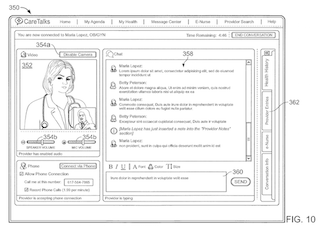 It's looking more and more like the path to victory in the major turf wars of digital health will not be through patent litigation.
It's looking more and more like the path to victory in the major turf wars of digital health will not be through patent litigation.
Earlier this week, a Massachusetts federal judge Indira Talwani ruled that American Well's telehealth patents, which the company had sued Teladoc for allegedly infringing, were unenforceably broad. She cited the same Supreme Court precedent, Alice v. CLS Bank, that an ITC judge used to invalidate Jawbone's patents last month in the tracker company's battle with Fitbit.
Much older precedents have created a category of inventions that are unpatentable because they constitute an "abstract idea". Under Alice, a 2014 unanimus decision, the Supreme Court devised a test for whether computer software was a patentable invention or just the application of technology to an unpatentable human process, and therefore an unpatentable abstract idea. Talwani applied this test to American Well and struck down the patents.
"Admittedly, the technology as spelled out in the claims at issue does, at least for purposes of this motion, allow patients to obtain healthcare more expeditiously than with prior telehealth systems," she wrote in her 17-page decision. "This, however, does not transform the claims’ abstract business practice into a sufficiently inventive concept, because claims describing methods that merely 'automate or otherwise make more efficient' traditional methods or techniques described in prior art do not render those claims patent eligible."
Inherent in Alice, and in the prohibition of abstract idea patents in general, is the idea that broad enforcement of technology patents in burgeoning innovation areas could hurt the health of the space. For instance, a friend-of-the-court brief filed jointly by Google, Amazon, Facebook, and others when Alice was under consideration asserts that "a plague of abstract computer-related patents is impairing and taxing innovation in the high-tech sector."
Teladoc, which petitioned the USPTO in 2015 to invalidate several of American Well's patents, greeted the news with understandable enthusiasm.
"We are delighted the court has ruled in our favor in this important case. Teladoc challenged these patents because we believe telehealth is a fundamental part of the modern health care system," CEO Jason Gorevic said in a statement. "Access to high-quality health care is too important, too broad and too obvious to be patented. This decision validates the position we took over a year ago — that the American Well patent portfolio is invalid and should not be an impediment to the proliferation of telehealth.”
American Well vowed to appeal the ruling. They argue that their technology does more than apply technology to an abstract idea and that a different precedent, DDR Holdings v. Hotels.com, is more applicable.
“American Well is the leading innovator in telehealth and we respectfully disagree with today’s decision," Bradford Gay, American Well's senior vice president and general counsel, said in a statement. "We believe the court’s extrapolation of existing Supreme Court precedent raises a novel and appealable legal issue."
"The local court’s decision, while disappointing, has no impact on our growing business or the business of our clients and partners,” Dr. Ido Schoenberg, Chairman and CEO of American Well, added. “American Well continues to innovate, offering industry-first capabilities with each new software release. A decade of this sustained investment in technology and know-how has made American Well undeniably the most robust and capable platform on the market today. This is Borders versus Amazon for healthcare.”


















